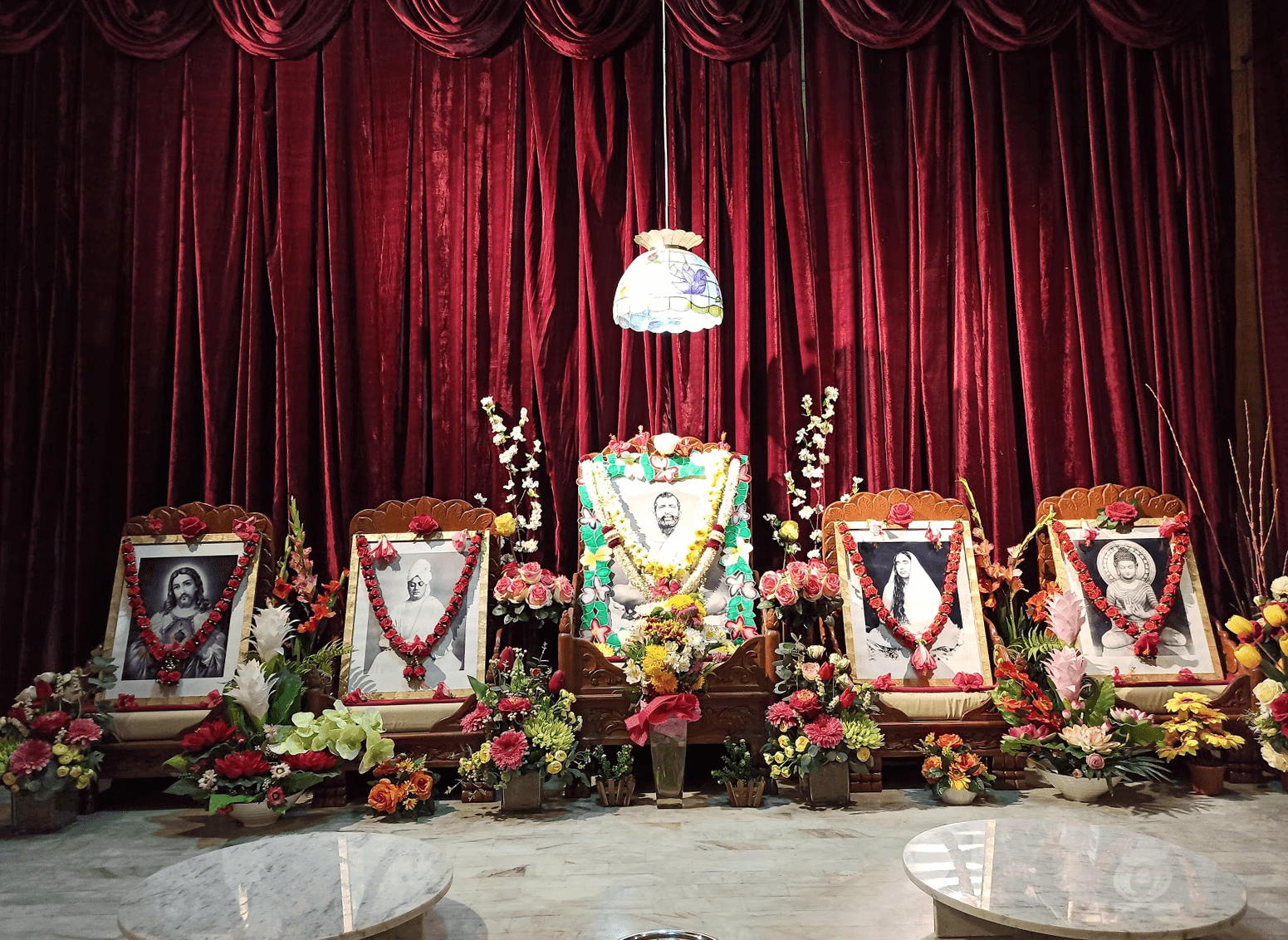
Those who feel a void in their hearts or cannot make sense of the complexities of the world, or of the intricacies of their own lives, or simply wish to expand their mental and spiritual horizons will find explanations, solace and inspiration in the ancient religious philosophy of Vedanta.
Sri Ramakrishna (1836-1886) reinterpreted Vedanta in plain language for the benefit of the modern man. Swami Vivekananda (1863-1902), his chief disciple, established the Ramakrishna Order that has since been propounding Vedanta as a broad, modern, scientific and universal religion and philosophy, perfectly suited to the needs of any citizen of the modern world.
The word Vedanta is a combination of two Sanskrit words: “Veda”, or divine knowledge, and “anta”, the end of, or the goal of. Vedanta defines God in its transcendental reality as Brahman, infinite existence, infinite consciousness and infinite bliss. Vedanta also accepts the personal aspect of God, as worshipped by mankind thru various religious personalities in all countries and at all times.
Vedanta asserts that the real nature of a human being is divine, or the Atman, that the purpose of human life is to realize or manifest it and that truth is universal. Vedanta accepts all religions of the world and reveres the great prophets, teachers and sons of God, because it recognizes the same divine inspiration in all.
The unity of all existence is one of the essential pillars of Vedanta. Divinity pervades everything in the universe. There is no place where we, infinite in nature, do not exist. Human suffering derives from the feeling of separation from this great cosmic unity and from our identification with our ego, or lower self, our likes and dislikes, our attraction and repulsion, our desires, fears, hatred, anger, lust, greed, etc., instead of with the Atman, our true and divine nature.
According to Vedanta, maya, or ignorance, is the apparent veil that covers our true nature. It is inscrutable, but it ceases to exist once our spiritual knowledge dawns. It is a conditioned and relative reality, which is subject to time, space and the law of cause and effect. Maya can be compared to the green scum that covers the clear water of a pond and prevent us from seeing it. The scum is pushed away by the purifying action of our unselfishness, truthfulness, constant religious practices, and perseverance thus we can access clear water, i.e. the Atman that, rid of the ego, regains the freedom that was all the time its own.
The word karma originates from the Sanskrit kri, to do. It means both action and its result. Our actions and thoughts create impressions both in our minds and in the universe that surrounds us. We receive back what we have given: “As ye sow, so shall you reap”, as stated by Christ. The effects of our actions and thoughts can be reaped either in our life or in a next one.
Reincarnation, or the continuity of existence beyond the death of the physical body, is the apparent journey of the Self towards its liberation.
The theories of karma and reincarnation explain the obvious inequities of human existence, the suffering of the innocent and the riddle of evil. We cannot arrive at any satisfactory explanation of our human condition only by looking at the present segment of existence that we call our life. Like an iceberg, the visible tip is but a small part of the mass that floats below the water. Vedanta places the responsibility of our condition right in our own hands and blames neither God nor a devil for what life brings us. We are but reaping the results of our own actions and thoughts, in this life or in previous ones.
Vedanta is not a cold and fatalistic philosophy. Each of our actions and thoughts build our future. In short, if we don’t like what we are, we do have a choice: drop the false identification with our ego and be free.
Finally, Vedanta teaches us neither to be indifferent to the suffering of others nor to be unduly heroic and pretend to “remedy the mistakes” of an apparently partial, cruel and indifferent God, as seen from the very limited perspective of our ego. We should love our neighbor, i.e. help those that come to us asking, because in so doing we really help ourselves and because, in truth, we ARE our neighbor.


